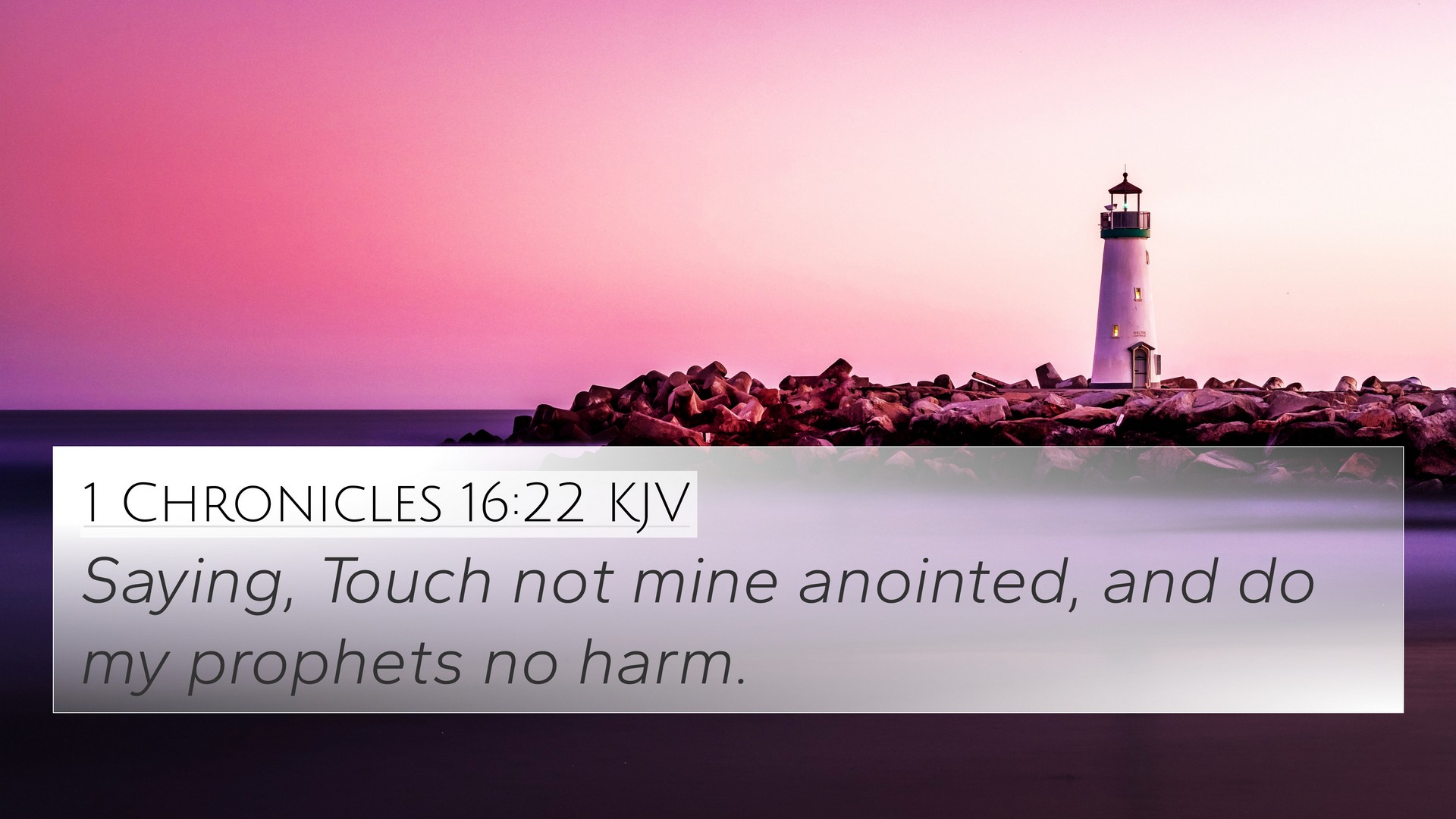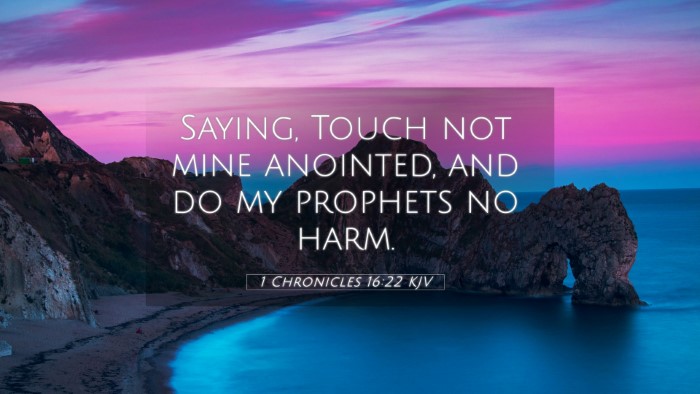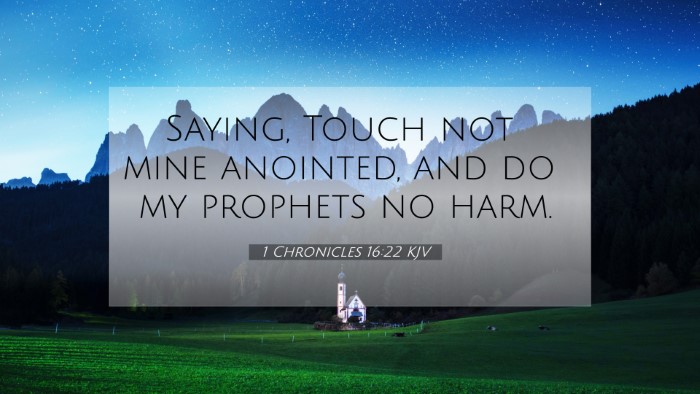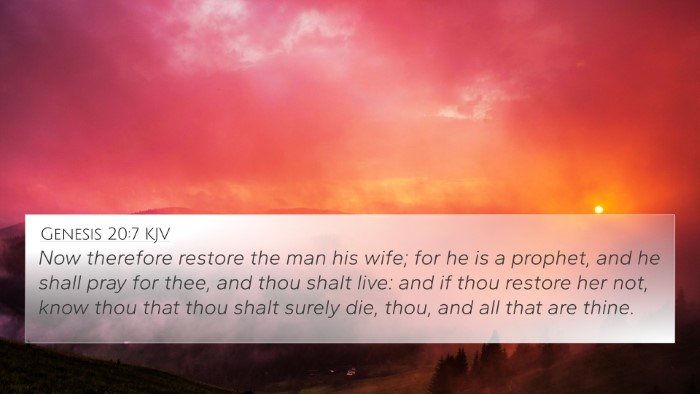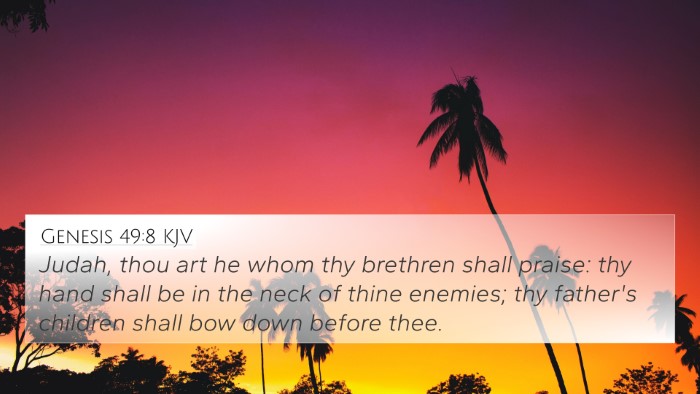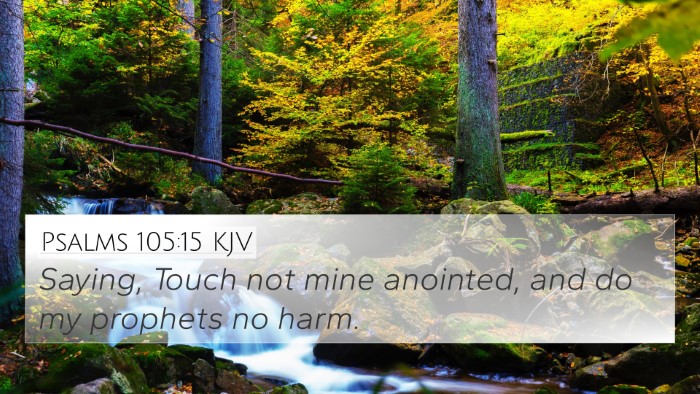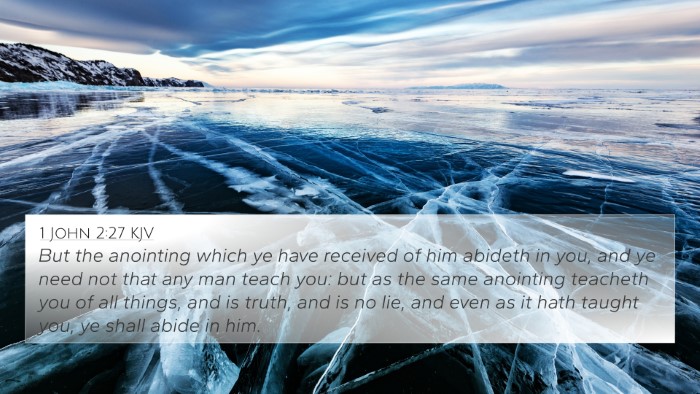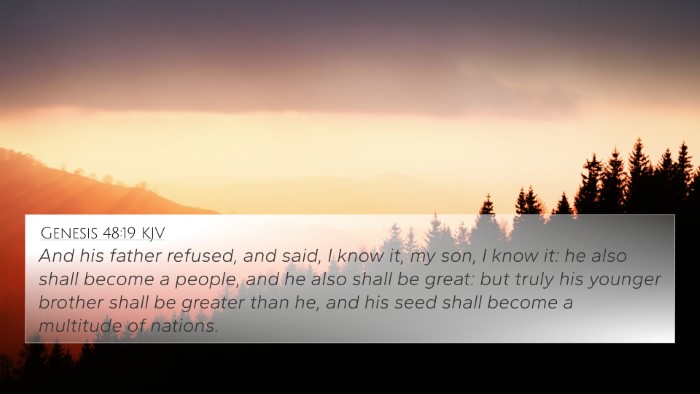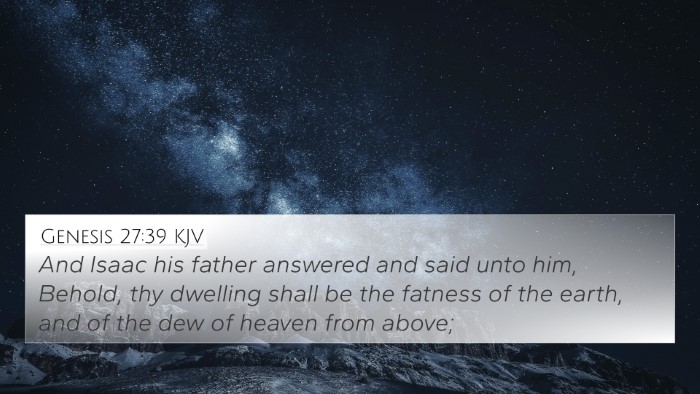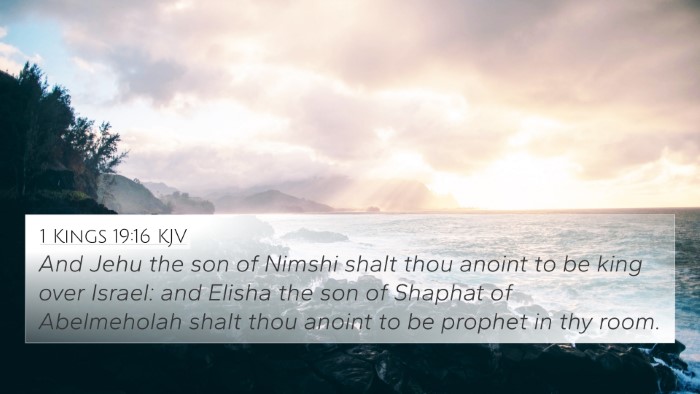Understanding 1 Chronicles 16:22
Verse: "Saying, Touch not mine anointed, and do my prophets no harm." - 1 Chronicles 16:22
Summary of the Verse
This verse emphasizes God's protection over His chosen leaders and prophets. It serves as a warning against harming those whom God has appointed, highlighting His sovereignty and the seriousness of His call on individuals. Understanding this verse requires insights from various commentaries to grasp its full meaning and implications.
Commentary Insights
Matthew Henry’s Commentary
Henry points out that this verse is part of David's song of thanksgiving. The directive to "touch not mine anointed" reflects God's aversion to violence against His servants. It suggests the providential care God provides for those who serve Him, reminding us of God's active role in defending His faithful. Furthermore, it underscores the significant honor and responsibilities that come with being anointed.
Albert Barnes’ Notes
Barnes interprets "mine anointed" as a reference to kings and prophets, referring specifically to David and his successors. He emphasizes that harming God's anointed would invite divine retribution, thus advocating for a healthy respect for the authorities ordained by God. Barnes underscores the principle that God will protect those who uphold His will, serving as a warning to those who might consider opposing them.
Adam Clarke’s Commentary
Clarke elaborates on the phrase "do my prophets no harm," emphasizing that God’s messengers are veiled in divine protection. He stresses that this not only applies to physical harm but also extends to verbal and spiritual attacks. Clarke also notes the broader implications for God's people today, showcasing the need for respect toward those who lead spiritually. It is a call for reverence in how believers interact with one another, particularly leaders.
Key Themes
- Divine Protection: The verse affirms that God actively protects His chosen leaders.
- Respect for Authority: It teaches believers about honoring those whom God has appointed.
- Call to Righteousness: Encourages vigilance against opposition to God's leadership.
- Consequences of Harm: Warns of repercussions for those who wrongfully oppose God's prophets.
Cross-References
In studying this verse, several others provide additional insights and connections:
- Psalm 105:15 - Emphasizes God's protection over His chosen ones.
- 1 Samuel 24:6 - David's refusal to harm Saul, highlighting the respect for God's anointed.
- Romans 13:1 - The principle of submission to governing authorities, as they are instituted by God.
- Matthew 7:1 - The call to avoid judgment against others, especially leaders.
- Ephesians 6:10-12 - The spiritual battle against principalities that can influence harm towards leaders.
- 1 Peter 2:9 - The priesthood of believers underscores a shared anointing among God's people.
- Acts 13:22 - Discusses God's favor towards David as His chosen king.
Connection to Other Scriptures
This verse serves as a significant example highlighting:
- Thematic connections regarding the sanctity of leadership in Numbers 16:30-35, where God's judgment protects His chosen leaders.
- Cross-references found in 2 Samuel 1:14-16 and 1 Chronicles 29:29-30, which discuss anointed leaders and their responsibilities.
- The idea of God's protection is echoed in Job 1:12, where God allows but also protects Job in trials and persecutions.
Application and Relevance
For modern readers, this verse encapsulates the importance of recognizing the dedication and role of spiritual leaders. It encourages an understanding of how inter-Biblical dialogue, such as reflected in the cross-references, informs the commitment to maintaining a respectful and supportive community. It’s vital for individuals to understand how their actions may impact those who are tasked with spiritual leadership, driving home the message to be cautious and respectful.
Conclusion
1 Chronicles 16:22 provides a powerful reminder about the divine responsibility associated with leadership. The insights drawn from noted commentaries collectively emphasize the reverence owed to God-appointed leaders and the dire consequences of disobedience. As believers seek to connect this verse within the broader biblical narrative, they recognize the vital theme of protection and respect amid spiritual authority.
